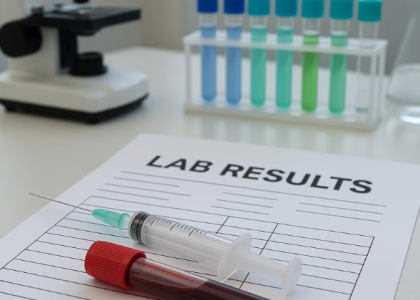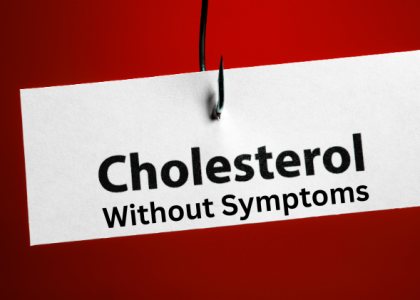Understanding ApoB: The “Bad Cholesterol Counter”
You may have heard about cholesterol tests before. Your doctor probably checks your cholesterol every year. But did you know that there is a better test called ApoB that can tell you more about your heart disease risk?
ApoB (short for Apolipoprotein B) is a protein that attaches to the bad types of cholesterol that cause plaque buildup in your blood vessels. Think of ApoB as a “bad cholesterol counter” – it counts all the harmful particles in your blood that can cause heart problems.
Why ApoB is Better Than Regular Cholesterol Tests
Regular cholesterol tests (called lipid panels) measure LDL or “bad cholesterol.” But these tests have a problem. While LDL levels can indicate heart disease risks, they’re not always consistent because LDL particles can vary in size and density. But every LDL particle carries exactly one molecule of ApoB, making ApoB a more accurate predictor of heart disease risks.
This is important because some people have high ApoB but a relatively low LDL-C, so their heart disease risk is underestimated by not measuring ApoB.
Why South Asians Should Pay Special Attention
If you are South Asian (from India, Pakistan, Bangladesh, Sri Lanka, Nepal, Bhutan, or Maldives), this test is especially important for you.
South Asian men and women have similar or lower LDL-C levels compared to other racial/ethnic groups. But compared to other Asian ethnicities, South Asians have smaller, less dense LDL-C particles with a higher concentration of ApoB. This indicates a larger atherogenic particle load that may account for the elevated risk of heart disease, even at lower LDL-C concentrations.
This helps explain why many South Asians develop heart disease despite having “normal” cholesterol levels on standard tests.
What Your ApoB Results Mean
The normal range for apolipoprotein B is less than 90 milligrams per deciliter (mg/dL) of blood. If your test results show a normal rate, you have appropriate amounts of lipoproteins in your blood and your risk for heart disease is low. ApoB-100 levels measuring above 110 milligrams per deciliter are high. If your test results show a higher than normal rate, you have a higher than normal risk for heart disease.
How to Improve Your Numbers
If your ApoB level is high, your doctor will likely recommend the same treatments they would for high cholesterol:
- Exercising for 30 minutes or more each day
- Eating plenty of fruits and vegetables
- Limiting saturated fats in your diet
- Staying at a weight that’s right for you
- Avoiding tobacco products
- Taking a cholesterol-lowering drug if needed
One Key Takeaway: Ask Your Doctor for an ApoB Test
Healthcare providers can order an ApoB test when they want an additional way to measure your cardiovascular disease risk. Having another option can give them more information if you didn’t come out high or low in the usual risk factors.
The next time you see your doctor, especially if you are South Asian or have family members with heart disease, ask: “Can I get an ApoB test?” This simple question could help you better understand your true heart disease risk.
Your health is in your hands. Knowledge is power.




